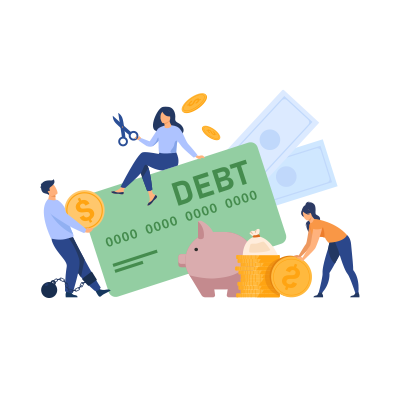Yup, we’re talking about debt! From scary news articles about payday loans to the much more common student loan, the word ‘debt’ can invoke a wide range of meanings and reactions. Today, we’ll be delving into debt a bit more and answering whether it’s an instrument for good or something to be avoided and in which cases debt could be either of these options.
Can debt ever be good?
In short, yes. A good debt is one that is a sensible investment in your financial future, leave you better off in the long-term and should not have a negative impact on your overall financial position. A key thing to remember with ‘good debt’ is that it should have a net positive impact on you in the long-term and definitely not leave you in a negative financial position. There are certain things which if you have in place, can help you decide whether taking on a certain debt is good for your future.
- Firstly, you should have a clear and specific reason for taking it out. Ensuring you have a reason for taking out a loan makes it easier to dedicate the money to that pre-assigned purpose and can avoid you getting into debt for items you don’t need or from making a decision that wasn’t well thought through.
- It’s also important to have a realistic plan for paying it back. How long do you estimate it will take to pay it back? What is this estimate dependent on? (for example, earning a particular amount each month). What is the likelihood that the conditions you need to fulfil your repayment plan won’t be met or stop halfway through your repayment? Do you have a back-up for paying it back?
- Lastly, identify the cheapest possible way of borrowing the money. This is where we hear stories of people borrowing £100 and having to pay back over £500 due to all sorts of interests and fees. It’s really important to do your research and ensure that you can afford to pay back the loan and won’t be met with any unexpected or unfair expenses throughout the process.
Exactly what constitutes good debt will vary depending on your personal situation but here are some examples of what is commonly considered good debt:
- Student loan: taking out a student loan to pay for university will help you become a graduate. This is considered a good investment because university graduates typically get paid more than non-graduates and, more importantly, because the interest rate is relatively low and you only have to start repaying the loan once you’re earning more than a certain amount. Once you start paying off your student loan, the exact amount you have to repay varies according to your income.
- Investing in your own business: a loan to help you develop your own business can also be a good debt, as long as you have a sensible and realistic business plan. If your business does well it will end up being worth far more than the loan you originally took out.
Ok, so what is bad debt?
Bad debts are those that drain your wealth, are not affordable and offer no real prospect of ‘paying for themselves’ in the future. If you took out a business loan which was well thought through and based on realistic calculations, it’s likely that the loan will ‘pay itself’ through the revenue you make by investing in your business. On the other hand, buying an expensive designer item which you might not be able to afford and aren’t using as an investment won’t ‘pay itself back’ as you’re not making a return on the item (unless of course, you use the item as an investment in some way or sell it for example).
As with good debt, there are certain actions that could indicate bad debt:
- Impulse purchases. I’m sure we’ve all had the experience of buying things we don’t actually need due to impulse but it’s important to avoid doing impulse buys using loaned money. If you’d like to learn from some members of the Doceo team and how they budget and avoid impulse or unnecessary buys, then feel free to have a read here.
- No realistic repayment plans. If you don’t have any plans as to how you can repay the debt or you have plans which rely on unrealistic things happening (for example, hopefully I’ll win the lottery and can pay off this debt) then it’s probably a good idea to take a step back and rethink.
Again, exactly what constitutes bad debt will look different depending on your personal situation but an example of a bad debt might be a luxury holiday you can’t afford. Whilst a luxury holiday can be a trip of a lifetime, it is best avoided if it will be accompanied by a lifetime of debt. Instead of getting into debt, try and save up first, if necessary reworking your plans so you can still take a holiday and take one you can afford.
Another example might be a brand new car you don’t need. New cars always lose their value over time and if you lost your job for example and couldn’t keep up the repayments, you might end up with a loan for more than you could sell the car for. That means you’d have no car but an outstanding debt (and interest) to pay- an example of debt that isn’t good.
As usual, I hope this has been informative and that you’ve learnt a bit more about how debt can be good or bad and if you want to find out more about SMART money goals & managing your money, register for our FREE event tomorrow! Let me know in the comments if you’ve ever thought about debt in this way or if any of your opinions on debt have changed!
